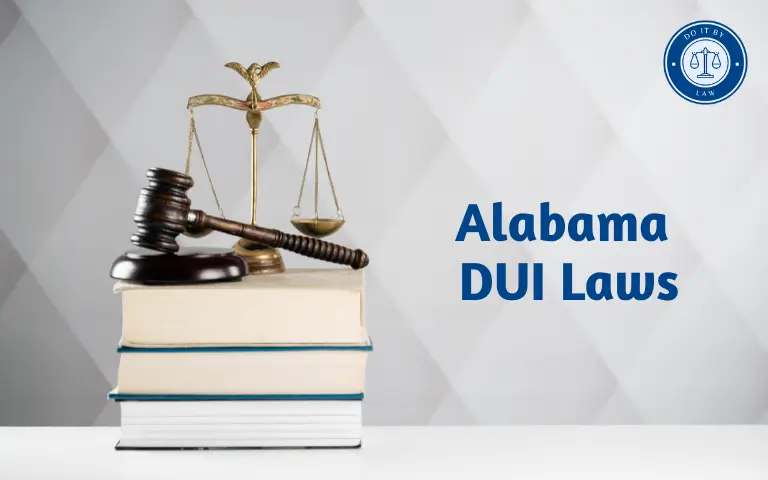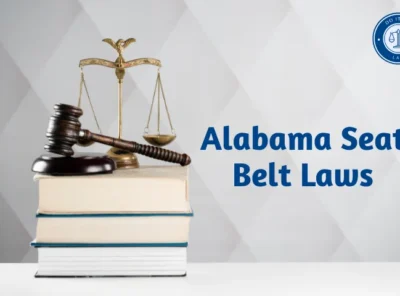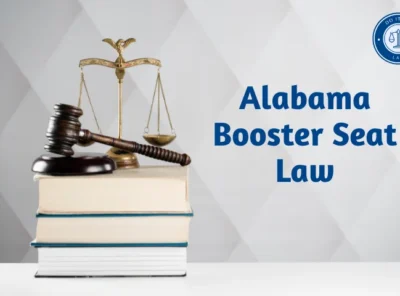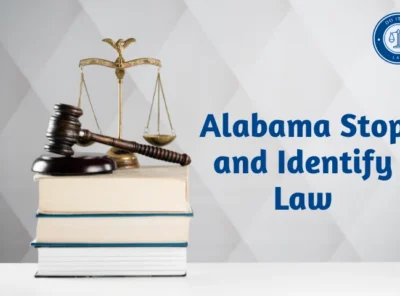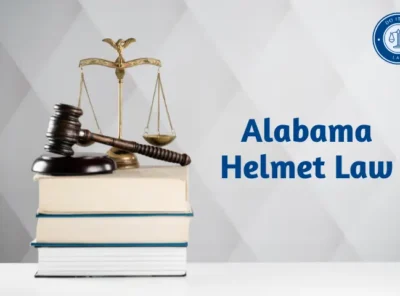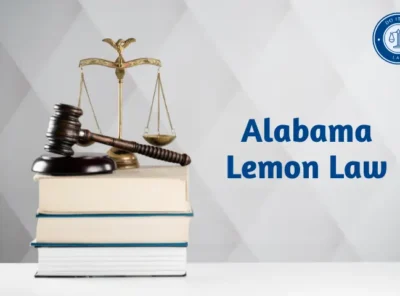Alabama DUI Laws: What You Need to Know
Navigating the complexities of traffic regulations is one thing, but encountering the intersection of road rules and legal boundaries, particularly around impaired driving, can be a different ball game. In Alabama, understanding the intricacies of the DUI statute is crucial for both ensuring personal safety and adhering to the state’s legal framework.
Alabama DUI statute, paving the way for a deeper understanding of what it means to operate a motor vehicle under the influence in the “Heart of Dixie.”
Alabama has strict laws prohibiting driving under the influence of alcohol or other substances. Consequences for DUI convictions in Alabama range from fines and license suspension to jail time. This overview covers key provisions, penalties, and FAQs on Alabama DUI statute.
When Alabama DUI Laws Were Enacted and Why
Laws against drunk driving originated in Alabama in the late 1930s after the state patrol was established. Additional legislation ramped up penalties in the 1980s-90s during nationwide pushes for tougher DUI statute driven by advocacy groups like MADD.
Reasons Alabama criminalizes DUI include:
- Improving public safety on roadways. DUIs are a leading cause of accidents and fatalities.
- Deterring dangerous behavior through punishment/accountability.
- Generating revenue from fines, fees, and program requirements like ignition interlock.
- Carrying out the social expectation to prohibit needlessly risky conduct.
Who Alabama DUI Laws Apply To
The broad web of Alabama’s DUI laws stretches across virtually anyone who takes the wheel in the state. Here’s a breakdown of who the laws apply to:
- Drivers: This is the most obvious case, as anyone operating a motor vehicle on Alabama roads, highways, or streets is subject to DUI regulations.
- Passengers: While seemingly unexpected, anyone riding in a car with a driver suspected of DUI can be held responsible for ensuring the child is properly restrained. This is not a direct DUI violation, but it highlights the shared responsibility for safety on the road.
- Other Operators: In situations like carpooling or school buses, individuals other than the driver may be entrusted with transporting passengers. These individuals also fall under the purview of the DUI statute and are expected to operate vehicles responsibly.
However, exceptions exist for specific scenarios:
- Taxis and Vehicles with 11+ Passengers: Drivers of taxis and larger vehicles designed to carry at least 11 passengers are not required to provide child restraint systems, though general DUI regulations still apply.
- Emergencies: If immediate medical attention necessitates quick transport, temporarily bypassing car seat requirements is allowed. However, it’s crucial to use appropriate restraints as soon as possible.
Key Provisions of Alabama DUI statute
Alabama’s DUI statute, officially known as § 32-5A-191 of the Alabama Code, outlines the state’s legal framework for impaired driving. Here are some key provisions to understand:
- Per Se BAC: Driving with a blood alcohol concentration (BAC) of 0.08% or higher is considered DUI per se, regardless of driving behavior.
- Impairment: Operating a vehicle while under the influence of alcohol, drugs, or any other impairing substance to the extent that renders you incapable of safely driving is also prohibited.
- Chemical Testing: Drivers arrested on suspicion of DUI are required to submit to a chemical test (breath, blood, or urine) to determine blood alcohol content. Refusal can result in additional penalties.
Aggravating Circumstances:
- Child endangerment: Presence of a child under 14 in the vehicle at the time of the offense significantly increases penalties.
- High BAC: BAC exceeding 0.15% generally leads to harsher punishments.
- Injury or death: Causing injury or death while driving under the influence can result in felony charges and significant prison sentences.
Penalties for Alabama DUI Violations
Penalties for DUI convictions in Alabama include:
First Offense:
- Jail: Up to one year in jail.
- Fines: $600 to $2,100, with additional court costs and fees.
- License Suspension: 90 days, with potential for ignition interlock device requirement for reinstatement.
- Substance Abuse Evaluation: Mandatory.
Second Offense (within 5 years):
- Jail: 5 days to 1 year, with a minimum of 5 days in jail or 30 days of community service.
- Fines: $1,000 to $5,000.
- License Suspension: 1 year, with mandatory ignition interlock device installation for reinstatement.
- Substance Abuse Treatment: May be required.
Third Offense (within 10 years):
- Jail: 60 days to 1 year, with mandatory minimum of 60 days in jail.
- Fines: $2,000 to $10,000.
- License Revocation: 3 years, with mandatory ignition interlock device installation for reinstatement.
- Substance Abuse Treatment: Usually required.
Fourth or Subsequent Offense (within 10 years):
- Jail: 1 year to 10 years, classified as a Class C felony.
- Fines: $4,000 to $10,000.
- License Revocation: 5 years, with mandatory ignition interlock device installation for reinstatement.
- Substance Abuse Treatment: Usually required.
Aggravating Factors:
- Child Endangerment: If a child under 14 is in the vehicle, penalties increase significantly.
- First Offense: Minimum fine of $3,000, double the standard minimum.
- Subsequent Offenses: Minimum jail time doubled.
- High BAC (0.15% or higher): Generally leads to harsher penalties within each offense level.
- Injury or Death: Causing injury or death while driving under the influence can result in felony charges and additional prison sentences.
Additional penalties may include mandatory ignition interlock device installation, vehicle impoundment, court costs, and increased insurance rates.
Recent Changes and Proposals to Alabama DUI Laws:
Recent Changes (as of January , 2024):
- Ignition Interlock Law Sunset in July 2023: The law requiring ignition interlock devices for most first-time DUI offenses expired in July 2023. It was not permanently renewed, but there have been ongoing discussions and proposals to reinstate it.
- Increased Fines for DUI with Child Endangerment: In 2022, the minimum fine for DUI with a child passenger under 14 was increased from $2,000 to $3,000.
- Clarifications and Updates: The statute has undergone minor modifications and clarifications over the years regarding aspects like age restrictions for car seat requirements and emphasis on following age- and weight-appropriate child restraint systems.
Current Proposals:
- Reinstating Ignition Interlock Law: Several proposals are under consideration to reinstate the requirement for ignition interlock devices for first-time DUI offenders, with some variations on the length of the requirement and potential exceptions.
- Lowering BAC Threshold: There have been discussions about lowering the legal per se BAC limit from 0.08% to 0.05%, aligning with some other states.
- Expanding DUI Definition: Some proposals suggest broadening the definition of “impairment” to include not just alcohol and drugs, but also marijuana and other impairing substances.
There is currently a push to increase the lookback window for counting prior DUIs from 5 to 10 years to impose stiffer punishments on recidivists.
Controversies and Debates Surrounding Alabama DUI Laws
Some controversies and debates related to Alabama DUI statute include:
- Disagreement over the impact of lowering legal BAC limits from .10 to .08 in the 2000s.
- Concerns around costs and reliability of ignition interlock devices.
- Racial profiling related to DUI stops and searches.
- Discretion given to courts on jail time and fines leads to sentencing disparities.
- Pushback against license suspensions from those relying on driving for work.
- Questions over the scope of DUI charges for vehicles like golf carts, scooters, ATVs, etc.
Main Takeaways on Alabama DUI Statutes
In summary, important takeaways on Alabama DUI laws include:
- Per Se BAC limit of 0.08%. Driving with this level or higher is considered DUI regardless of driving behavior.
- Impairment beyond alcohol: Operating a vehicle under the influence of any impairing substance is also prohibited.
- Chemical testing required: Drivers suspected of DUI must submit to a breath, blood, or urine test. Refusal has consequences.
- Penalties range from fines and license suspension to jail time, depending on the offense level and aggravating factors.
- Recent changes: Ignition interlock device requirement for first-time offenders expired in July 2023, but there are proposals to reinstate it.
- Current debates: Lowering the BAC limit, expanding the DUI definition, and addressing marijuana legalization raise controversies.
Important points to remember:
- Child endangerment significantly increases penalties.
- Prior offenses lead to harsher punishments.
- Ignition interlock devices may be mandatory for reinstatement after suspension.
- Seeking legal advice is crucial for understanding potential consequences and exploring options.
Always drive responsibly and avoid impaired driving to protect yourself and others.
How Long Does a DUI Stay on Your Record in Alabama?
The answer depends on the type of record you’re referring to:
Criminal Record:
- Conviction: A DUI conviction stays on your criminal record forever in Alabama. However, there are limited situations where expungement may be possible after a lengthy period (generally 10-20 years), depending on the specific circumstances and severity of the offense.
- Arrest: An arrest for DUI that doesn’t result in a conviction usually stays on your criminal record for one year in Alabama.
Driving Record:
- A DUI conviction stays on your driving record for a minimum of five years in Alabama.
- Depending on the severity of the offense and any subsequent violations, it can stay on your driving record for up to ten years.
Frequently Asked Questions About Alabama DUI Laws
References on Alabama DUI statute
- Alabama DUIs and License Suspensions – Code of Alabama Title 32
- Alabama Impaired Driving Laws Overview from MADD
- ignition Lock Requirements in Alabama DUI Cases
- Administrative License Suspension for DUI in Alabama

